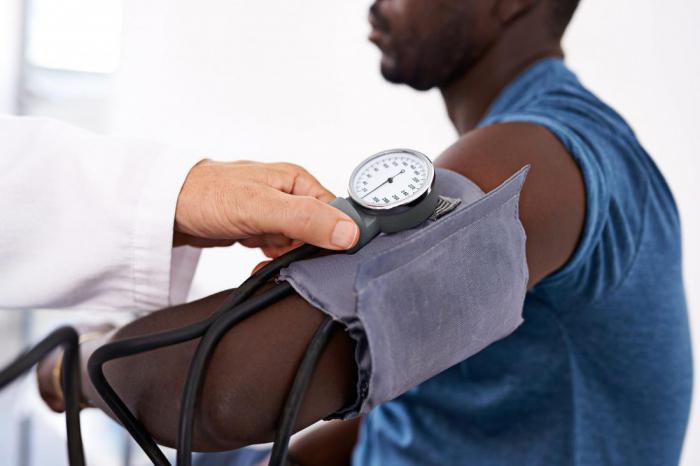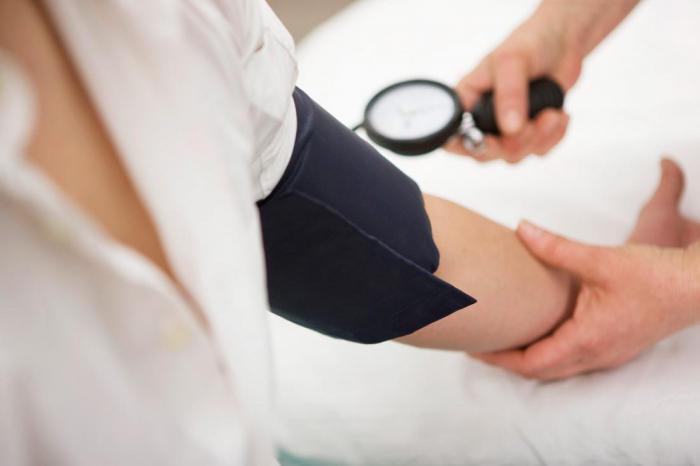Even those of us who strive to eat healthy and wholesome foods face a lack of vitamins and nutrients. Here are some clear signs that your body is deficient in vitamins.
Brittle, discolored nails
Iron is an important and essential mineral for the body to function. Women lose more iron due to menstrual cycle Also, vegetarians often experience a lack of this element in the body. Men usually consume more iron than necessary.
Other benefits of chicken. It helps maintain healthy teeth and, implicitly, bones, and helps the kidneys, liver, and central nervous system function properly. Complex processes are associated with this absorption; lack or inadequacy of this can lead to damage to the blood vessels. In addition to niacin, it helps maintain proper energy metabolism and reduces the risk of heart attack. Due to the mineral selenium, the risk of arthritis is reduced. It contains phosphorus, important mineral for the body. ... In addition to all these benefits, chicken also has a big benefit for men.
When the body is deficient in iron, it manifests itself in outward signs for example, nails, both on the hands and on the toes, become pale and often break, and the inner parts of the eyelids also turn pale.
Women who have not reached menopause need 18 milligrams of iron a day, men need 8 milligrams. Iron is best absorbed by the body from animal sources such as red meat and fish, poultry, oysters, and other seafood. Sources of plant iron include spinach and sweet peas. Vitamin C significantly improves the absorption of iron by the body.
High blood pressure

This condition may mean that the body is deficient in vitamin D. Vitamin D deficiency is more common in dark-skinned, dark-skinned and black-skinned people. A sufficient or increased amount of this substance leads to low pressure, and the disadvantage contributes to its increase.
An adult, regardless of gender, needs 600 units (units of action) of vitamin D per day. Unfortunately enough of this nutrient difficult to obtain by consuming food as it is found in few foods. It is best to get enough sunlight. However, if this is not possible, it is worth increasing your dietary intake of fatty milk, red fish, oranges and natural mushrooms (grown in nature).
Low blood pressure

This condition may indicate a lack of vitamin B12. Other symptoms of a lack of cobalamins (B12 vitamins) are unsteady gait, muscle failure, and frequent urination.
Any adult needs at least 2.4 micrograms of cobalamins per day. The following foods are excellent natural sources of B12 vitamins: shellfish, trout, salmon, beef, eggs, and milk. When deciding to use medications and vitamins, it is best to opt for sublingual tablets (suckable under the tongue) because they are better and faster absorbed by the body.
Muscle cramp

One of the main blood electrolytes is potassium. Its lack in the body leads to the fact that protein is poorly absorbed and muscle mass poorly formed. A drop in potassium electrolyte levels often leads to muscle cramps in the calf area.
The most common cause of a lack of potassium in the blood is fluid loss: intense sweating, diarrhea, vomiting, and other conditions that contribute to dehydration.
An adult needs about five thousand milligrams of potassium per day and is best consumed with food. Rich sources of potassium include bananas, avocados, coconut, potatoes, and legumes.
Increased fatigue

Increased fatigue can be a symptom of a lack of vitamin C in the body. In the 18th century, this condition could be fatal and caused such terrible diseases as scurvy. Today we are not threatened with such an outcome, but a lack of vitamin C manifests itself in a weak immune system, fatigue, irritability, and sometimes in bleeding gums and dry hair. Heavy smokers are especially prone to this condition. They need to consume one-third more vitamin C per day in order to overcome its deficiency. The same goes for passive smokers.
Women need approximately 75 milligrams of vitamin C per day, men 90 mg, and smokers 125 mg. The best sources of vitamin C are citrus fruits, tomatoes, kiwis, pineapples, spinach, broccoli, cantaloupe, and bell peppers.
Thyroid problems

The thyroid gland secretes thyroid hormones necessary for the body to function efficiently. Usually, a lack of these hormones is closely related to a lack of iodine in the body. Problems in the functioning of the thyroid gland can only be detected by laboratory analysis, however, a lack of iodine in the body can lead to various effects. For example, decreased cognitive performance and memory problems, decreased energy, apathy, and low temperature bodies may indicate a lack of thyroid hormones. Thyroid problems are especially dangerous during pregnancy, as a lack of hormones can lead to miscarriage.
Most adults need 150 micrograms of iodine a day, while pregnant women need 220 micrograms. Iodine is found in most seafood, dairy products, and iodized salt and water.
Frequent damage to bone tissue

Lack of calcium in the body leads to a decrease in bone mass and makes bones fragile. The condition can develop into osteoporosis, lead to low bone density, changes in metabolism bone tissue and, accordingly, to frequent fractures.
Human bones reach their peak of development by the age of 30, after which they begin to slowly weaken and lose useful minerals, especially calcium. Therefore, it is extremely important that the body receives the rate of this essential substance. However, this is not all: in addition to calcium, bones need activity and exercise, so it is very useful to go for walks, run, do yoga and / and aerobics.
An adult up to 45-50 years old needs about a thousand milligrams of calcium per day, after the indicated age the rate rises to 1200 milligrams. The largest number Calcium is found in dairy products, especially cheese and milk, collard greens, turnip leaves, lettuce, tofu, green peas and green beans. Pharmaceutical vitamins and supplements are best taken with meals.
Cracked lips and corners of the mouth

Thus, vitamin B6 deficiency is sometimes manifested. Other symptoms may include a swollen tongue, depression, and confusion. Symptoms begin to appear only when the lack of this group of vitamins in the body becomes critical. Sometimes a lack of vitamins B6 is caused by medications.
People under 50 need an average of one and a half milligrams of these components per day, after fifty, the rate increases to 1.7 milligrams. Foods containing vitamin B6: chickpeas, tuna, salmon, bananas and marinara sauce. It is best to treat your vitamin B6 deficiency with medications prescribed by your doctor.
Normalizes metabolism, is important for normal vision, protects skin and mucous membranes from damage, which is why it protects against many infections. Signs of its lack - deterioration of vision at dusk, decreased immunity, acne on the skin, in women - a feeling of dryness in the vagina.
B vitamins
There are more than a dozen of them. The condition of the nerves, skin, eyes, hair, liver, oral cavity, muscle tone in the gastrointestinal tract, and brain function depend on them. And they work as a "team", therefore the signs of their shortage are most often complex. This is fatigue, frequent colds, disruptions in work. nervous system(irritability, insomnia), fat and carbohydrate balance, decreased hemoglobin levels, skin itching, cracks in the corners of the mouth, inflammation of the mucous membranes.
It is a powerful antioxidant that helps the body defend itself against infections, blocks toxic substances in the blood, increases the elasticity and strength of blood vessels, and many other functions. With its lack, immunity decreases (this is indicated by frequent colds and exacerbations of chronic diseases, general soreness), lethargy, bleeding gums appear, wounds heal poorly, the skin becomes dry, the condition of the hair worsens.
First of all, he is responsible for the condition of the bones. But he also has other "responsibilities." It affects the state of the thyroid, parathyroid and gonads, and is involved in the regulation of heart contractions. Deficiency of this vitamin often leads to osteoporosis. The first symptoms of its lack are cramps in the muscles of the legs, cramps in the limbs, dental problems, endocrine disorders.
Minerals:
This is element number 1: the normal functioning of the thyroid gland depends on it. And the hormones that it produces ensure the normal functioning of all body systems - they regulate the metabolism of proteins, fats, carbohydrates, the functioning of the nervous system, brain, etc. Iodine deficiency is very common. Its signs are irritability, drowsiness, lethargy, impairment of memory and attention, weakening of the immune system, edema, in women - menstrual irregularities.
It is necessary for hematopoiesis and intracellular metabolism. The first signs of its lack are pallor of the skin, weakness, dizziness, frequent infectious diseases, a decrease in hemoglobin levels, which can lead to iron deficiency anemia.
Participates in many metabolic processes, "nourishes" the heart. It works very closely with sodium, helping to remove excess fluid from the body. Symptoms of a lack of this mineral are spasms of the heart muscle, increased fatigue, frequent urination, the appearance of erosions on the mucous membranes.
This mineral preserves bone density, affects blood clotting, the excitability of the heart muscle, which determines the rhythm of its contractions. The lack of this mineral can be noticed if there are problems with teeth, brittle nails, hair loss. And the most alarming symptom is fractures.
Provides protein biosynthesis and carbohydrate metabolism by participating in enzymatic processes. It has a vasodilating and diuretic effect, keeps the walls of blood vessels in good shape. What can indicate a lack of it? Muscle cramps, joint pain, a feeling of loss of strength, increased nervousness, insomnia.
It is necessary for the normal functioning of all body cells, participates in the production of essential hormones, stimulates the production of immune blood cells that protect us from cancer, and provides redox processes. The most obvious signs of its deficiency are skin problems, acne, etc., increased fatigue, irritability, brittle nails, baldness, as well as impaired appetite and smell.
Hurry to the pharmacy?
Do not rush to draw conclusions when you find certain symptoms. Firstly, some of them may not speak of a deficiency of vitamins, but of certain characteristics of the body. For example, the absorption of a particular vitamin can be affected by specific features intestines, and zinc can be poorly absorbed when taking birth control pills or corticosteroids.
Secondly, we rarely lack one, most often the deficit is “complex”. But in any case, alarming symptoms are a reason to see a doctor and get tested. An objective picture can be identified using blood and urine tests. For example, the level of B1 is determined by erythrocytes, B2 - by erythrocytes, leukocytes, blood serum and urine, A, D and E - by examining blood plasma, etc.
It is important to monitor the level of vitamins if there are chronic diseases. For example, in diseases of the gastrointestinal tract (gastritis, enteritis), diabetes mellitus, the processes of assimilation of vitamins and minerals are disrupted. Suction fat-soluble vitamins A, E, K and D affect the condition of the gallbladder and liver. In these cases, sometimes higher doses of vitamins and minerals are needed, but which ones and in what quantity should be decided with the attending physician. Many people don't know that vitamins are supposed to work in conjunction with minerals and vice versa. For example, iron is actively absorbed only with the help of ascorbic acid, calcium - vitamins D, and so on.
About speculation and truth
Many people are very prejudiced towards, guided by the following considerations:
Argument one:
Chemical substances, they cannot be more useful than living ones - from natural products.
Actually: All vitamins are organic substances, and "synthetic" ones are completely identical to natural ones in terms of chemical structure and biological activity. These are not surrogates, but the same compounds that are found in any plant and animal cell.
Argument two:
Artificial vitamins are less digestible than those found in natural foods.
Actually: Everything is exactly the opposite. In products, vitamins are in bound form, and in preparations - in "pure" form, so the body does not waste energy on their release from accompanying substances, but immediately starts to work.
Argument three:
May cause allergic reactions.
Actually: It is natural products that provoke allergies more often. First, because any product consists of a complex complex chemical substances, each of which can become an allergen. Secondly, there is practically no "clean" food now: most products contain preservatives, dyes, flavor enhancers, flavors and other substances, allergic... Vitamins are not substances foreign to the body, which means that they cannot provoke allergic reactions.
Argument four:
Taking artificial vitamins can lead to hypervitaminosis.
Actually: There are only two vitamins - A and D, long-term intake of which can cause "overdose". But for this they need to be taken in quantities exceeding the need hundreds (!) Times. All other vitamins do not accumulate: their excess is excreted in the urine.

